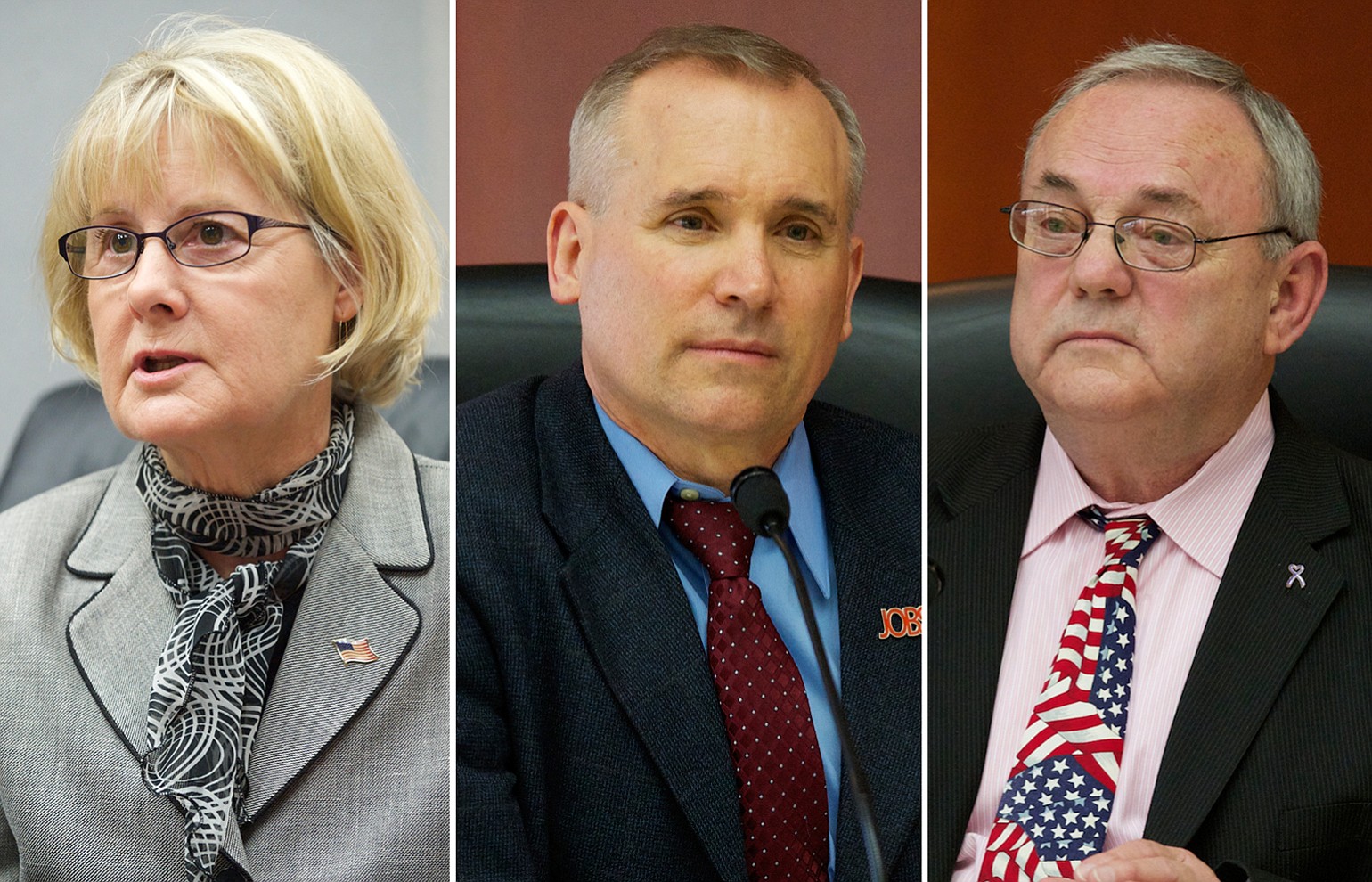At the 11th hour, Clark County Councilor David Madore has unveiled new changes to the Comprehensive Growth Management plan that county staff say could reset the entire land-use planning process.
The county council was originally slated to pick its preferred alternative to the growth plan Tuesday, setting land-use policy for the next 20 years in unincorporated Clark County. However, following a five-hour meeting, the board voted 2-1 to delay its decision on the preferred alternative to Nov. 24. Councilors Madore and Tom Mielke voted to delay the meeting.
Councilor Jeanne Stewart, whose relationship with her fellow councilors has grown increasingly tense in recent weeks, cast the dissenting vote following a public outburst at Madore.
“I want to say that it is absolutely shameful the way that you have hijacked this process to get people to comply with your, and only your, will,” Stewart said to Madore. “This is not good government. It’s shocking and I’m ashamed of it.”
Tuesday’s drama and ultimate delay is yet another turn of the screw in an already drawn-out planning process. After weeks of working behind closed doors on his own version of the preferred land-use alternative, Madore revealed a revamped version of Alternative 4, his own zoning proposal, less than an hour before the council’s 10 a.m. meeting. Madore’s plan would allow landowners of many rural, agricultural and forest lots in Clark County to subdivide their properties into smaller lots than currently allowed, potentially creating more than 12,000 new lots in unincorporated Clark County.
Madore also wrote two additional documents posted to the county website shortly before Tuesday’s meeting that call for other changes in the plan update. County planning staff said they, like the public, only saw the material in the hour before the county meeting and had no time to review it.
One of Madore’s documents accused Environmental Science Associates, the firm that performed the environmental analysis of the county growth plan, of using “unrealistic assumptions” when writing the draft environmental impact statement. The impact statement said that, of the four alternatives, Alternative 4 would have the most sweeping environmental ramifications, if adopted.
The second document says the county has underestimated the population projection in its planning assumptions. Instead, Madore is calling for the county to plan for a population of 681,134 people by 2035, which is the state Office of Financial Management’s highest projection for growth in Clark County.
“If we are going to plan for the future, a realistic future, I want to use realistic numbers,” Madore said.
But changing the population projection now could force the county to restart the entire planning process, said Gordy Euler, the county’s community planning deputy director. The county approved its original population projections in late 2013, one of the earliest actions taken in the growth plan update.
And even if the population projections aren’t changed, a new, revamped Alternative 4 may have to go back to the Planning Commission for review, staff said during the meeting. At its meeting last month, the Planning Commission voted not to recommend any proposals that could create smaller lots in rural areas, including all of Alternative 4.
But county staff and the public will have to wait to see the fate of Madore’s newest proposals. County deputy prosecuting attorneys Chris Cook and Chris Horne both warned the councilors that they couldn’t discuss any of the proposals during Tuesday’s meeting or else be in violation of the Open Public Meetings Act, which, in part, prompted the county to push the meeting back to late November. The act requires government boards to hold its meetings in public, and give the public a day’s notice of what will be discussed at the meeting.
The delay comes at a time when the county is already pushing its June 30, 2016, deadline to submit and receive approval on its Comprehensive Growth Management Plan update to the Department of Commerce. There’s still much more work to be done. Once the council approves a preferred alternative, Environmental Science Associates will have to write a final environmental impact statement, and the county will have to write its Capital Facilities Plan, which determines how the county will pay for its planned growth.
If it misses that deadline, the county could be found out of compliance with the Growth Management Act and be ineligible for state grants.
Alternative 4 has been the crux of controversy around this year’s Comprehensive Growth Management Plan update. Some rural landowners say the ability to subdivide their property into smaller lots will grant them more freedom, but the plan has been criticized by public officials and private citizens, including farmers, city officials and land-use attorneys.




